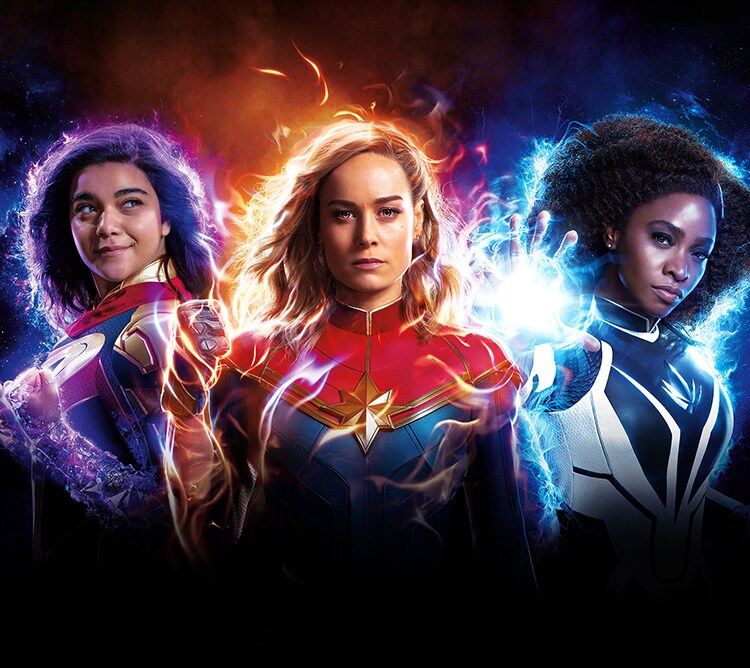American superhero films by Marvel Studios, set in a shared universe of The Marvel Cinematic Universe (MCU), have been around us since 2007. So far, Marvel Studios has produced and released 33 films, becoming the highest-grossing movie franchise of all time. Avengers: Endgame by the franchise is the highest-grossing movie of all time. On the other hand, Nia DaCosta’s The Marvels has resulted in the lowest-grossing movie from the MCU franchise. Made at a budget of $274.8 million (gross), The Marvels grossed $206.1 million at the box office. With The Marvels flopping at the box office badly, talks of superhero fatigue are taking over the film industry.
Box office number, critical response, and other factors contributed to describing the MCU adventure as a box office disaster. Factors contributing to the failure include franchise fatigue, lack of star power in the film, and a shift in audience tastes away from superhero movies.
Marvel’s Revitalizing Strategy? What it should be?
The Marvels’ disastrous show made it the lowest-grossing movie from The Marvel Cinematic Universe (MCU) franchise. This poor performance of the movie seems the end of the repetitive formula that made the MCU so successful. It is high time to look back and analyze things like familiar characters, interconnected storylines, and regular releases every few months. Marvel needs to rethink its existing strategy and move away from its fixed, formulaic approach to movies to stay relevant and mingle with the audience. All answers to queries concerning Marvel’s new strategy lie within the interview of Disney CEO Bob Iger who emphasized revitalizing its film studio after consecutive box office discontents including “The Marvels.” Excerpts of this interview highlight unique points on possible future actions.
- Revitalizing Disney’s film studio
- Address quality issues
- More selective with sequels
- Compelling storytelling
Iger admitted that audiences moved to watch movies on streaming. He says, “The experience of accessing [the films] and watching them in the home is better than it ever was. And [it’s] a bargain when you think about it. Streaming Disney+ you can get for $7 a month. That’s a lot cheaper than taking your whole family to a film. So, I think the bar is now raised in terms of quality about what gets people out of their homes, into movie theaters.”
The quality has been an issue since Disney launched its streaming service in late 2019. The company diluted its MCU features to increase its output to feed Disney+. Iger adds, “‘The Marvels’ was shot during Covid. There wasn’t as much supervision on the set, so to speak, where we have executives [that are] really looking over what’s being done day after day after day.”
Iger says that the MCU was a victim of its success. He explains, “And I’m not sure another studio will ever achieve some of the numbers that we achieved. I mean, we got to the point where if a film didn’t do a billion dollars at the global box office, we were disappointed. That’s an unbelievably high standard and I think we have to get more realistic.”
Iger emphasized the need to be more selective about Marvel superhero sequel films and fresh stories. He says, “I don’t want to apologize for making sequels. Some of them have done extraordinarily well and they’ve been good films, too. I think you there has to be a reason to make them, you have to have a good story. And often the story doesn’t hold up to is not as strong as the original story. That can be a problem.”
Iger believes that there should be a reason to make sequels as Disney has made too many in the last few years. He confirms, “It doesn’t mean we’re not going to continue to make them. We’re making a number of them now right as a matter of fact. But we will only greenlight a sequel if we believe the story that the creators want to tell is worth telling.”
Quality over quantity
Marvel Studios and Disney need to scale back upcoming superhero movie numbers from three to just one. It is good to focus on “Deadpool 3,” starring Ryan Reynolds and Hugh Jackman, in 2024. It is high time to rework and reshoot the films that are set to be released in 2025, including “Captain America: New World Order” and “Thunderbolts.”
The MCU has paid a heavy price for compromising the quality of its theatrical releases. It has to make the audience free from fatigue and confusion.
Marvel should take stock of everything around and refocus on quality over quantity. The mixing and matching of popular characters from Marvel’s properties can be beneficial for Marvel. Moreover, it is time to introduce new generation characters to appease the audience.
Conclusion
In summary, Iger focuses on stimulating Disney’s film studio by giving a talk on quality issues, being more selective with sequels, and shifting away from a quantity-driven approach in favor of prioritizing compelling storytelling.
